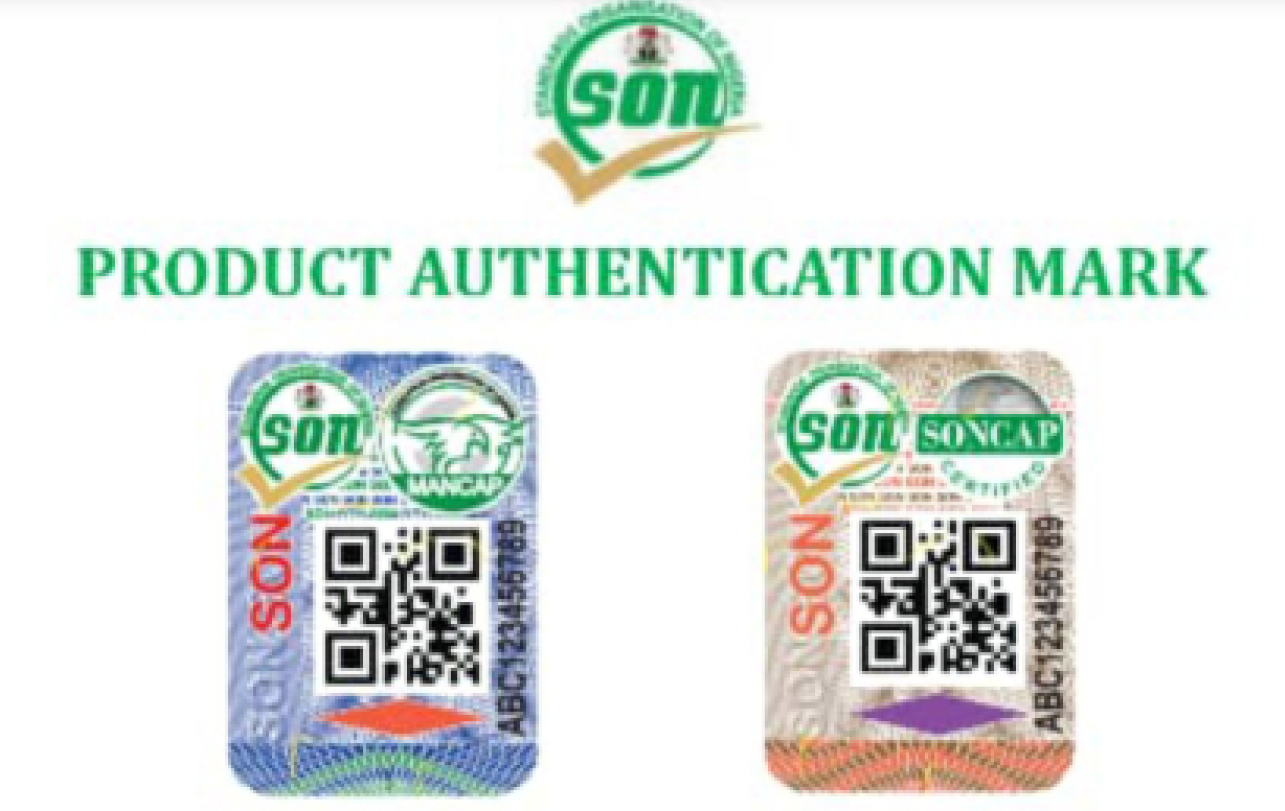Over the years, the challenges of combating sub-standard and counterfeiting goods have not been successful as many Nigerians have fallen victim to counterfeit and fake products that have cost many business owners their investments, while others have lost dear ones as a result of hazards caused by substandard goods.
Daily Trust on Sunday reports that the Nigerian economy is said to be losing an average of N15 trillion annually due to substandard products, which underscores the need for authentication mark tools for easy distinction between fake and original products.
Analysts, at different fora, have maintained that tackling the menace of fake products with identifiable mark is crucial considering the fact that Nigeria is a key member of the African continent that signed on to the African Continental Free Trade Area (AfCFTA) in 2018.
It is also expected to expand the size of Africa’s economy to $29trn by 2050 as the largest economy on the African continent, and Nigeria is positioned as the biggest player in AfCTA affairs, with numerous imports and exports.
Why UK’s restriction won’t stop brain drain – Health experts
2023 census: Early headache for new government
AfCFTA, if fully implemented, according to World Bank, is estimated to boost regional income by seven per cent or $450bn, speeding up wage growth and lifting 30 million people out of extreme poverty by 2035 and Nigeria is determined to get a fair share of this market with the introduction of the Product Authentication Mark (PAM), an initiative of SON, to mitigate the impact of substandard products’ dumping in the country and counter fraudulent businesses in the region that may want to circumvent the Rules of Origin implementation.
Consequently, the Standards Organization of Nigeria (SON) has now availed Nigerians the opportunity of identifying genuine and authentic from fake and counterfeited products with the introduction of the Products Authentication Mark (PAM). PAM is being enforced in accordance with Sector 5 of the SON Act, 2015.
Checks by Daily Trust on Sunday show that SON owns PAM, a distinct mark to be applied to all products that comply with the SON Conformity Assessment Programme (SONCAP) and Mandatory Conformity Assessment Programme (MANCAP).
While SONCAP is a distinct mark for imported commodities, MANCAP is a requirement for locally manufactured commodities.
However, arising from the rampant application of the mark on non-certified products, SON decided to control the printing of the mark as well as improve its security features through physical and digital technology.
How Products Authentication Mark (PAM) works
Findings by Daily Trust on Sunday revealed that Products Authentication Mark (PAM) is applied on each product to ensure traceability and tracking of imported and local products. Similarly, products certified by SONCAP and MANCAP can apply for the issuance of PAM stickers.
It is issued as a sticker with security features and a QR code which can be scanned by a smartphone and also embedded with 20 security features and will position local manufacturers to take competitive advantage of the nation’s involvement in the continental trade agreement and help in reducing the number of Nigerian-made products that have been rejected internationally.
However, because of the rampant application of the mark on non-certified products, SON now controls the printing of the features through physical and digital technology.
Director-general SON, Mallam Farouk Salim, said PAM will empower consumers at the point of purchase. He said in line with Section 5 of the SON Act No. 14 of 2015, SON has been empowered to ensure the authenticity and traceability of products certified to meet the requirements of the relevant Nigeria Industrial Standards(NIS) or other approved specifications, adding that PAM was introduced to ensure effective control of non-complying products in the Nigerian market and to protect genuine importers from faking and product adulteration by ensuring that only SON-certified products are in the markets in the long run.
What SON is saying about PAM
Providing more insights to Daily Trust on Sunday on the Product Authentication Mark, SON’s director of product certification, Mr Tersoo Orngudwem, said with the new initiative, anyone importing or producing goods must be certified.
He said: “With four to 20 security features, PAM number is unique and they are not replicated, they are alphanumeric and there is no duplication so with that, the security is enhanced better than those we even took from particularly the countries in the East and South Africa,” he said.
According to him, with the effective implementation of PAM, many investors will come into the country because there is no fear of counterfeiting manufactured products, adding that businesses in the country will ensure they have good manufacturing practices and satisfactory analysis reports for their products.
Orngudwem disclosed that a nationwide sensitisation of PAM would first start with Lagos where most of the country’s imports are situated.
He explained that the choice of Lagos as a first port of call was a deliberate attempt to involve the importers of goods because the stamp will be provided there.
“When we are sure of the quality of goods that have arrived, then we give you the stamp based on the number of goods that we inspected. So, we want to engage the importers of these goods for direct retail into our markets so that they will have the stamp and we will also use the jingle to convince consumers and so on.
“We are targeting Lagos first which is one of the most populous states in the country, then Kano, Port Harcourt and other states.
“Eventually, we will go to all the states in the country even making the sensitisation in the various languages in the various states so that the common man in our hinterlands will know because when we put more pressure on the counterfeiters and fakers in the urban areas, they migrate to the rural areas where they think the information has not reached.
“We will come to Abuja being our administrative capital so consumers here will know what is up for them to have value for their money,” he explained.
On how PAM works, he added that “The programme is designed such that the product has the stamp on it and you have the QR code either on your Android phone or there is a number on the stamp on the product. If you don’t have an Android phone or an IOS phone, you can send the number of the product on the stamp to a code, a toll-free code 281 and within 5 seconds, they will return a message telling you that the product is certified by SON and is good for use. If it is an Android or an IOS phone, you just download SON Palm, keep it on your phone, walk into your shop, whether it is locally manufactured or imported good, check if it is on it, scan and send the message directly to our server and as I said in the beginning, the server has a GPRS connection that will indicate the location where those substandard goods are.
“With that, the SON staff who are in the enforcement unit that is to be connected to the system will know where such products are in different locations in the various states,” Orngudwem noted.
This Explainer is produced in partnership with the Centre for Democracy and Development (CDD)

 Join Daily Trust WhatsApp Community For Quick Access To News and Happenings Around You.
Join Daily Trust WhatsApp Community For Quick Access To News and Happenings Around You.

